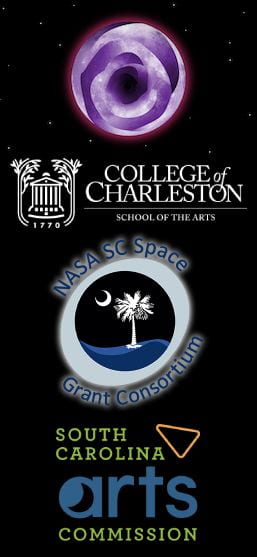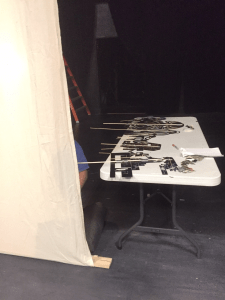What a year it has been!
Now that we can look back rather objectively, we realize that our Cannon St. performance was among the last live performance events to take place in Charleston in 2020! We are glad that things seem to be changing for the better in the Spring and Summer of 2020!
Quarantine gave us some time to reflect on what we had done, and think about how we can share our process with more people who are interested in integrating arts and science learning. Here are some things that we’ve been up to during the Covid year:
Workbook Plays
In the age of COVID-19, we have been re-imagining “That Which We Call a Rose.” “Rose” is now becoming what we call a workbook play. A workbook play is a script embedded with various activities and lesson plans designed to reinforce science and art concepts. Activities in the workbook play include building mission control, crafting a moon, or composing a monologue about their emotional imagination of space travel, and more. The team is polishing a draft of the first workbook play,“Monsters on the Moon.” We hope that we’ll be able to distribute it here this year.
Publications
- Vivian and Emily wrote a chapter in the book STEAM Education: Transdisciplinarity of Art in the Curriculum. The chapter is titled “But, what about the eyeballs?”: Devised Theatre as Transdisciplinary Knowledge-Generation Tool” and using Rose as an example of arts integration. The book will be available in Fall 2022
- Vivian and Kenya wrote an article titled “The “A” in STEAM: PaR as Fifth Space for Research and Learning in the Arts and Sciences” for PARtake: The Journal of Performance as Research. We have revised and resubmitted this article and we’ll let you know when it is available to read online!
Guides and Lesson Plans
The lesson plans and resource guides that we made available last summer are still here. Please incorporate them into your classroom, pod, or home STEAM activities!
- Moon and Bennu Resource Guide- Resource Guide: The Moon and Bennu | “That Which We Call A Rose” (cofc.edu)
- Mars and Titan Resource Guide- Resource Guide: Mars and Titan | “That Which We Call A Rose” (cofc.edu)
- Lesson Plans- Educational Outreach: Lesson Plans | “That Which We Call A Rose” (cofc.edu)
Have you already made something and you’d like to share it? Please send it to us here and we will post it on our blog!
Wishing all of you health and happiness in Summer 2021!
Kenya, Vivian, and the Rose Crew





